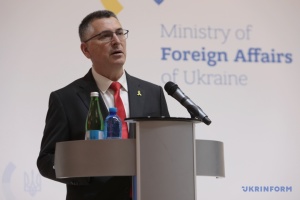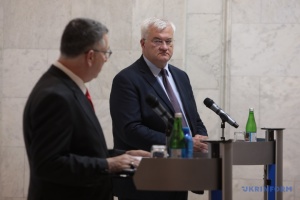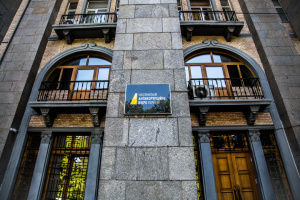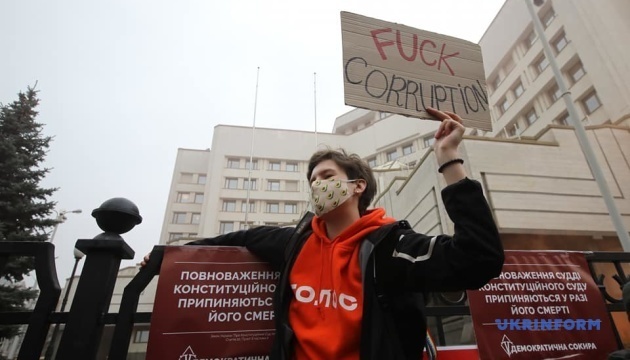
Compromise in reinstating liability for lies in e-declarations: pros and cons
It has recently been reported that Ukraine has finally begun to solve its constitutional crisis. First, Verkhovna Rada Speaker Dmytro Razumkov signed a bill reinstating and relaxing criminal liability for false declaration of assets. Secondly, a bill was registered in the Verkhovna Rada to restore the full work of the National Agency on Corruption Prevention (NACP), taking into account the specifics of anti-corruption oversight of the judiciary. Thirdly, the Constitutional Court resumed its work, however, in its unchanged format. The Venice Commission promised to approve this week its opinion on Ukraine's anti-corruption system and the reform of the Constitutional Court proposed by President Volodymyr Zelensky.
Ukraine's international partners, who have put on hold the next tranche of aid in this regard, are not satisfied with all the steps taken by the Ukrainian authorities.
A dormitory instead of a prison
The first thing the Verkhovna Rada did to resolve the crisis was to pass a law reinstating criminal liability for lies in e-declarations and failure to submit e-declarations. The document is called a compromise between the presidential bill, which provided for imprisonment for up to two years for lying in asset declarations, and the parliamentary bill, which provided for liability in the form of community service.
However, restraint of liberty may be imposed on an official only if he or she intentionally has not declared the property in the amount of over UAH 9 million (about $300,000 at the current exchange rate). During the restraint of liberty, a corrupt official will perform community service and stay not in prison, but in a correctional center, where the convict will be allowed to use the Internet, telephone and leave the premises with the permission of the institution's management. It is proposed that those who hide the property for less than UAH 9 million pay a fine.
If an official "forgets," for example, to declare two Mercedes-AMG E63 S 4Matics (experts say it is the most expensive model in its class, which costs UAH 3.6 million) or a luxury apartment in the center of the Ukrainian capital (worth about UAH 8 million), the maximum penalty for the culprit could be a fine of UAH 85,000 (about $3,000) or community service. To obtain a two-year restraint of liberty (not to be confused with deprivation of liberty!), an official, for example, must make a mistake in the declaration for the three specified purchases at once.
"We tried to find a balance and use all the positive things in both bills so as to pass the bill as soon as possible. Speed, in this case, is a very important aspect," Verkhovna Rada Speaker Dmytro Razumkov said. "We had to pass this law so that it could come into force by the end of this year and so that we did not violate the electronic declaration system."

Andrii Osadchuk
"We catastrophically dislike the legal structure and logic of this compromise. But not making this decision will have disastrous consequences for everyone. Therefore, in this difficult situation, [the Ukrainian party] Voice supports the so-called compromise. At the same time, we will immediately submit amendments to this article. We demand that the threshold for criminal prosecution is reduced and that imprisonment for top corrupt officials is introduced," said Andrii Osadchuk, an MP from the Voice party, immediately after the vote.
At the same time, Razumkov acknowledged that Ukraine would not be able to emerge from the constitutional crisis only with this law. "By and large, there are three issues that we will have to resolve. The first one is to restore liability [for lies in asset declarations], and we have done that. The second one is to create conditions for the smooth operation of the NACP, taking into account the positions that were specified in a judgment of the Constitutional Court of Ukraine. The third issue is to create a balance in different verticals of government and ensure the predictability of decisions," Razumkov said at a briefing after signing the document.
NACP against MPs' decision
As expected, Oleksandr Novikov, head of the National Agency on Corruption Prevention, disagreed with MPs' decision.
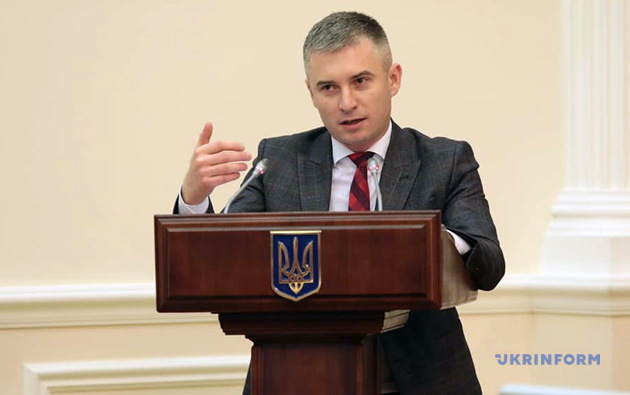
Oleksandr Novikov
The NACP explained that the Verkhovna Rada recognizes the intentional false declaration of wealth as, in fact, a criminal offense, rather than a crime. That is, corrupt officials can be freed from liability in the event of sincere repentance. This gives them "an opportunity, having paid a fine, not to submit a declaration and hide the property acquired in a corrupt manner. [...] In connection with the above, please apply the right of veto to this law in accordance with Paragraph 30, Part 1 of Article 106 of the Constitution of Ukraine," Novikov said in a letter to the president. The NACP's position remains unchanged – imprisonment should be envisaged for the intentional false declaration of assets for more than UAH 1 million.
"The Criminal Code gives two years to investigate criminal offenses. During this time, the NACP can verify and find false data, and NABU [National Anti-Corruption Bureau of Ukraine] may have time to investigate the case, although this is often problematic because corrupt officials hide their property abroad. But in courts of first instance and appeals, this case will definitely get stuck for more than two years. Lawyers know how to delay cases," said Oleksandr Kalitenko, a legal advisor at Transparency International Ukraine. He said that after two years, all charges would be dropped and a corrupt official would be "clean" before the law. The Anti-Corruption Action Center also emphasized that community service in Ukrainian realities would not be a punishment.
Only one official convicted
However, some experts believe that any attempt to toughen the article on lies in asset declarations will be futile, as the Constitutional Court will again have a reason to challenge, in its opinion, an inconsistently strict norm.
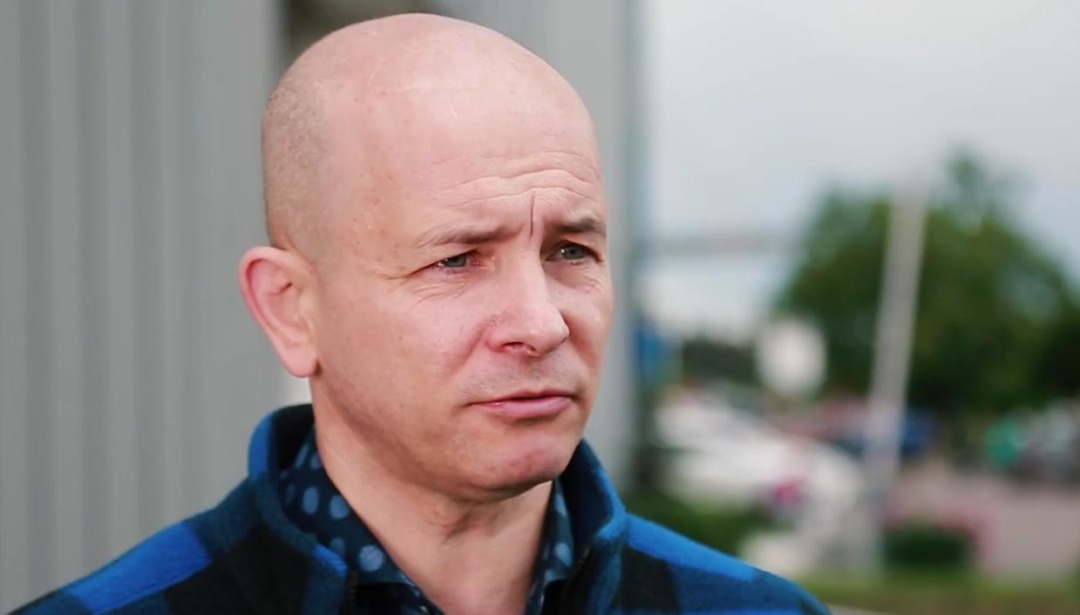
Borys Kushniruk
"Civil servants, including law enforcement officers, judges, deputies of all levels, who intentionally provide false information or fail to provide data on their income and wealth, must pay a fine by court decision. Most importantly, in addition to a fine, they should automatically resign from the civil service and should be banned from holding positions in government for ten years. It is much more effective. What the NACP chairman proposes will again create an occasion for the Constitutional Court of Ukraine to rule on the gravity of the crime being inconsistent with the severity of the punishment," economic and political expert Borys Kushniruk said.
In his opinion, the compromise bill is better than nothing, but it still has its pitfalls. For example, the term of the ban on holding positions in government is only three years, which, moreover, is not an imperative norm. In addition, the question of who will control judges' electronic declarations remains unresolved.

Oleksandr Chebanenko
Oleksandr Chebanenko, an expert on the law enforcement and judicial systems reform at the Ukrainian Institute of the Future, wrote in his Facebook post that out of millions of e-declarations submitted prior to the Constitutional Court's judgment to declare the article on criminal liability for false declaration of assets unconstitutional, only 66 people had been brought to account and only one person had been imprisoned.
"In order to bring people to account under these articles, as was the case before, it will be necessary to prove that a person 1) knew and was aware that he or she was providing false information (or knowingly did not provide it) and 2) wanted to provide false information or not provide it at all. Judicial practice shows that even a notarized document does not guarantee that these circumstances can be proved and the person will not state that he or she 'was unaware,' 'forgot,' 'did not want' and so on. The words of this person in the new/old [wording] of the article proposed by the deputies will be the main evidence," Chebanenko said.
In his opinion, if it is really possible to prosecute a person, rather than imitate prosecution for violations in submitting asset declarations, then words "knowingly" and "intentionally" should be removed. At the same time, liability should be (most likely) administrative and envisage punishment for recidivism - dismissal with confiscation of undeclared or incorrectly declared property.
Partners keep silence
It should be noted that the European Union reacted quite restrainedly to the first step taken by the Verkhovna Rada - the reinstatement of criminal liability for lies in e-declarations. Brussels welcomed such a step but said the punishment could have tougher.
"Good to see that Verkhovna Rada voted to reinstate criminal liability for submitting knowingly false information in declarations. Foreseen sanctions could have been tougher, though," EPP Group Spokesman on Foreign Affairs Michael Gahler tweeted.
There were no assessments from the IMF. They seem to be waiting for a comprehensive solution and the effective settlement of the crisis that arose in the system of Ukraine's anti-corruption bodies at the end of October this year. They do not want to deal with impunity for corruption in Ukraine.
The Venice Commission is expected to approve its opinion in the coming days. At the request of the Ukrainian side, it stated its readiness to provide expert assistance in finding a balanced comprehensive solution. President Volodymyr Zelensky had asked the Venice Commission to examine whether there was a possible conflict of interest and whether the Constitutional Court had followed the procedure for considering the case and how well-founded its judgments were.
We will soon see what Ukraine's partners say. In case of a positive opinion by the Venice Commission, the leadership of the Verkhovna Rada promised to immediately register in parliament a bill designed to decide the fate of the Constitutional Court. In addition, a group of people's deputies has already registered in the Verkhovna Rada the bill No. 4470 on amendments to the law "On Corruption Prevention," which restores the full operation of the National Agency on Corruption Prevention.
The explanatory note to the document states that changes to the legislation will ensure the full functioning of the NACP, giving it the necessary powers and rights. The bill will determine the procedure for the NACP's response to violations of the law, signs of corruption and corruption-related offenses, as well as establish some features of such a response if appropriate actions are taken by judges of the Constitutional Court.
Meanwhile, on December 8, after a month-long break, the Grand Chamber of the Constitutional Court resumed its hearings behind closed doors. According to Mariana Haiovska, head of the Constitutional Court's department for communications and international cooperation, the Constitutional Court is now interpreting the provisions of the fourth paragraph of the preamble of the Constitution of Ukraine at the request of 142 deputies. It turned out that in the 28th year of Ukraine's independence, people's deputies still do not understand what "decent living conditions" in Ukraine mean…
Maryna Nechyporenko, Kyiv

